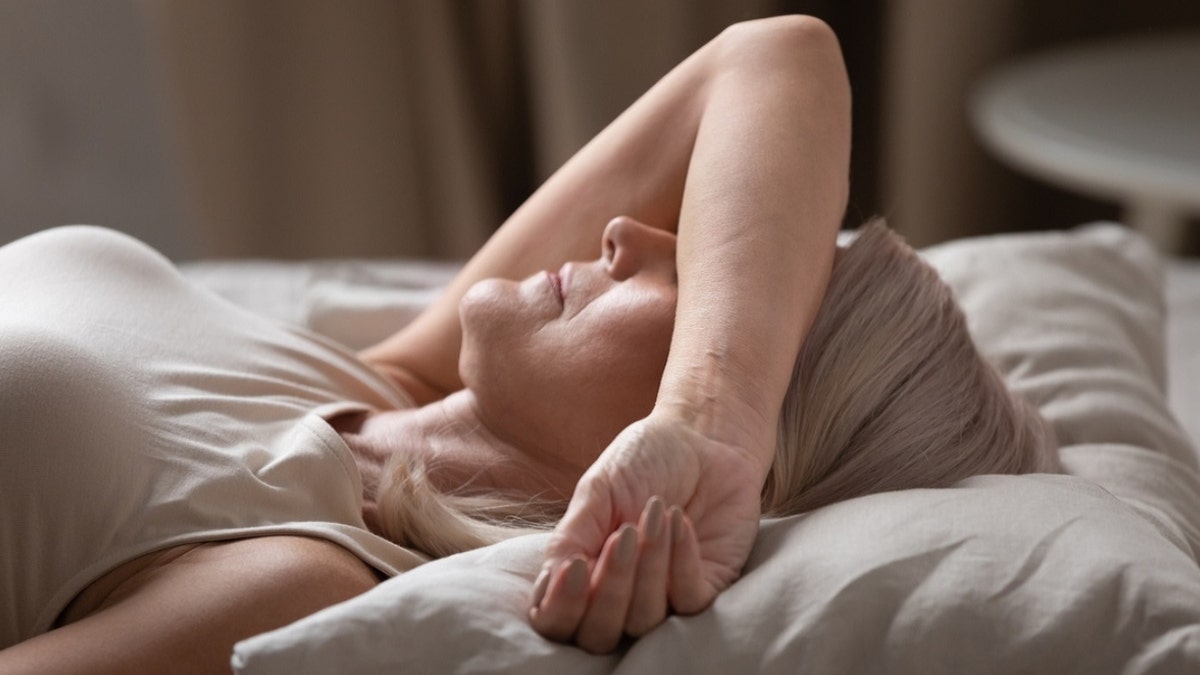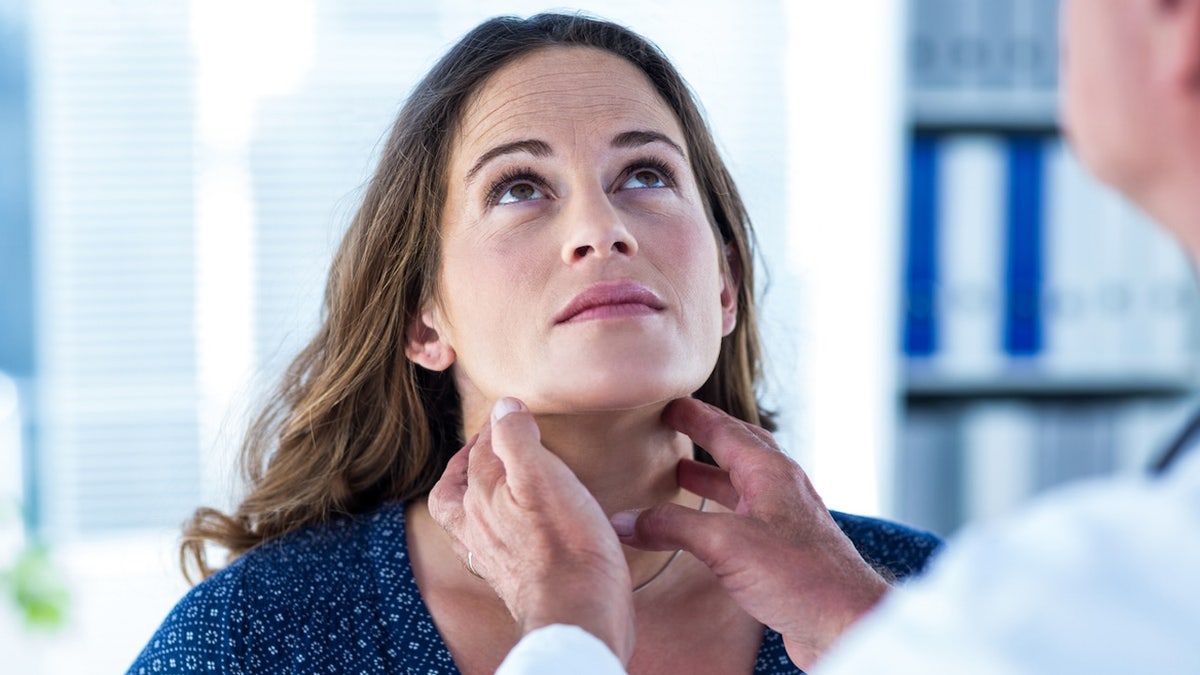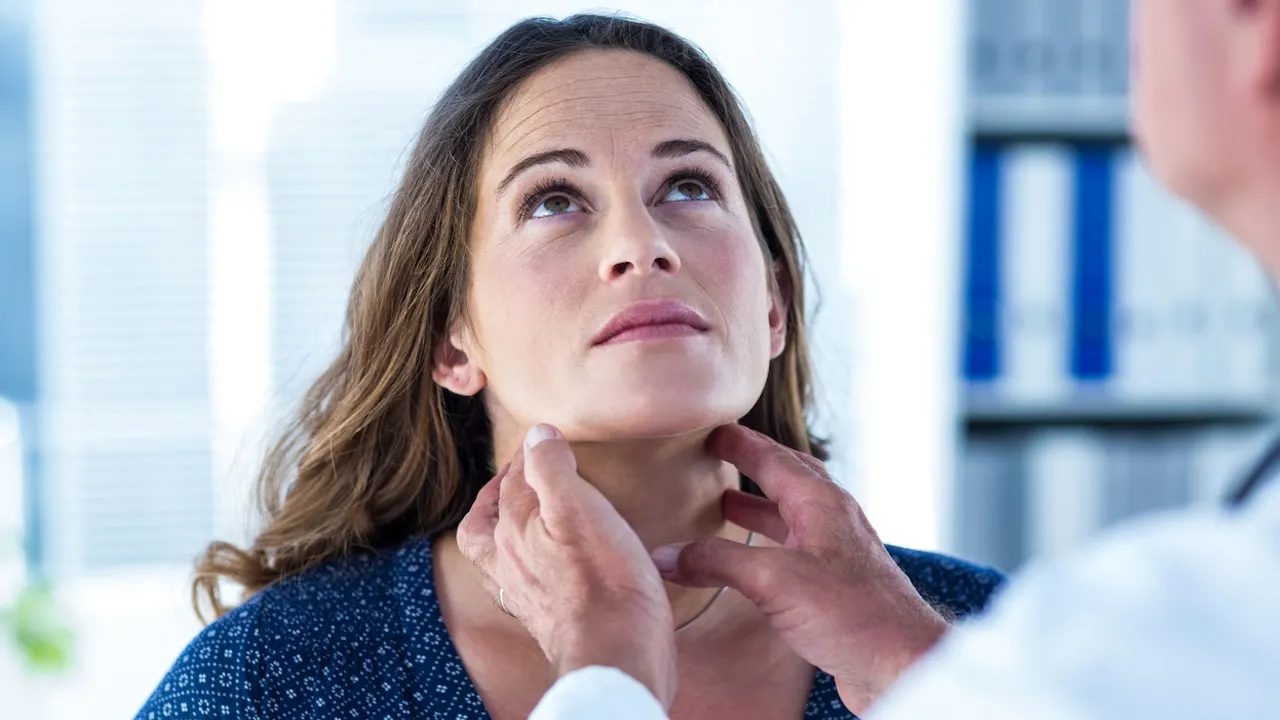If you've woken up in the middle of the night drenched in sweat, it can be a little scary.
You could be experiencing night sweats, which are usually associated with menopause.
But medical experts say the condition can also be caused by other problems or situations.
GOOGLE SEARCHES FOR 'OWNER' REACHED ALL-TIME HIGH IN 2023, NEW STUDY NOTES
To learn more, doctors weighed in during interviews with Fox News Digital to share insights on the hot topic of night sweats and what to do about it.
What are night sweats?
Excessive sweating during sleep, or night sweats, occurs when there is a dysregulation of the body's natural reaction to excess heat, said Jesús Lizarzaburu, MD, a family physician at TPMG Grafton Family Medicine in Yorktown, Virginia.
Night sweats can be caused by various factors. Read on to see if any of these sound familiar to you. (iStock)
“Symptoms include profuse sweating that can soak bedding and nightwear, unrelated to an overheated environment,” Lizarzaburu told Fox News Digital.
What problems can cause night sweats?
Night sweats can be caused by several factors.
Hormonal changes. The most common cause of night sweats is hormonal changes, such as menopause in women, Dr. Lizarzaburu said.
However, she said this is not limited to women.
THE NEW YEAR MAY BRING A BETTER NIGHT'S SLEEP IF YOU FOLLOW THESE 9 SMART STEPS
To a much lesser extent, low testosterone levels in men can also cause night sweats.
Medicines. Certain medications such as antidepressants, those used to treat diabetes (hypoglycemic), hormone blockers used to treat certain cancers, and certain psychiatric drugs may be at the root of night sweats, Lizarzaburu also noted.

Some medications, such as antidepressants, medications used to treat diabetes, hormone blockers used to treat certain types of cancer, and certain psychiatric medications, may be linked to night sweats, one doctor said. (iStock)
Hormonal disorders. Conditions such as hyperthyroidism or an overactive thyroid gland can cause night sweats, he explained.
Infections. Infections such as tuberculosis, HIV/AIDS, endocarditis (inflammation of the heart valves), osteomyelitis (inflammation of the bones) and even abscesses can cause night sweats, Lizarzaburu said.
SLEEPING MORE DURING THE WEEKEND COULD HELP PREVENT HEART ATTACKS, STUDY SAYS
“However, I would like to point out that in the case of infections, other symptoms such as fever or localized swelling would occur,” he clarified.
How can night sweats be treated?
Treatment for night sweats really depends on the cause, said Mike Sevilla, MD, a family physician at Family Practice Center of Salem in Salem, Ohio.
He said treatment may include lifestyle modifications, such as avoiding night sweat triggers, sleeping in a cooler room and wearing more breathable clothing.
“I usually start with these initial steps,” Sevilla said.

According to experts, a series of lifestyle modifications and non-drug options could help treat night sweats. (iStock)
“There are possible medication options,” he said. “However, I recommend people consult their GP because they may require medical tests to rule out possible medical causes of night sweats.”
He also noted that there are a lot of lifestyle modifications and non-drug options to treat night sweats.
FOR QUALITY SLEEP, TIME IS EVERYTHING, EXPERTS SAY: HERE IS THE SECRET TO SUCCESSFUL SLEEP
Here are some examples.
Look food and drink triggers. “Avoid potential night sweat triggers before bed, such as alcohol, caffeine, nicotine, spicy foods, and others,” Sevilla recommended.
Calculate the time of your workouts. Increase exercise during waking hours and not right before bed, he noted.
Keep hydrated. Suggest drinking cold water before going to bed.
Relax before going to bed. “Consider relaxation techniques such as meditation or controlled breathing exercises,” she recommended.

Doctors say taking steps to relax before bed, including meditation or controlled breathing, can help improve your sleep experience. (iStock)
Create a favorable sleeping environment. Sleep in a cooler room and consider using a fan, Sevilla said.
Improve your bed bandages. Consider investing in a cooling pillow, cooling sheets, or a cooling mattress.
DO HEAVY BLANKETS REALLY OFFER A SLEEP CORRECTION? THIS IS WHAT YOU NEED TO KNOW
Wear breathable clothing. Wear light, loose-fitting pajamas and dress in layers to make it easier to make adjustments during sleeping hours, she said.
Monitor your medications. Sevilla warned that some over-the-counter vitamins and supplements can cause night sweats or interfere with prescription medications.
“If you can't sleep through the night due to night sweats, eventually this disruption will affect your quality of life.”
Keep a healthy weight. Staying active and being mindful of your diet can help reduce the condition.
When is it justified to consult a doctor?
Seek medical attention whenever your quality of life is affected, said Lizarzaburu of TPMG Grafton Family Medicine.
“If you can't sleep through the night because of night sweats, over time this disruption will affect your quality of life,” he noted.
Aside from the effects on quality of life and sleep, patients should be more seriously concerned when they are present along with swollen lymph nodes, fever and unexplained weight loss, as these may be symptoms of lymphoma, Lizarzaburu told Fox News. Digital.

A doctor or health care professional can help diagnose the cause of night sweats. (iStock)
A doctor or medical professional can help you diagnose the cause of your night sweats.
“For example, if the cause is menopause, you can start with supplements and move on to hormone replacement,” Lizarzaburu said.
CLICK HERE TO SUBSCRIBE TO OUR HEALTH NEWSLETTER
“Yeah [it’s about] low testosterone levels in men, testosterone replacement can help.”
He added: “If the cause is hyperthyroidism (overactive thyroid), medications may be prescribed to counteract it.”
CLICK HERE TO GET THE FOX NEWS APP
And, if medications cause night sweats, the prescriber can “reevaluate the condition to look for alternative medications or adjust dosages,” she said.
For more health articles, visit www.foxnews.com/health.











